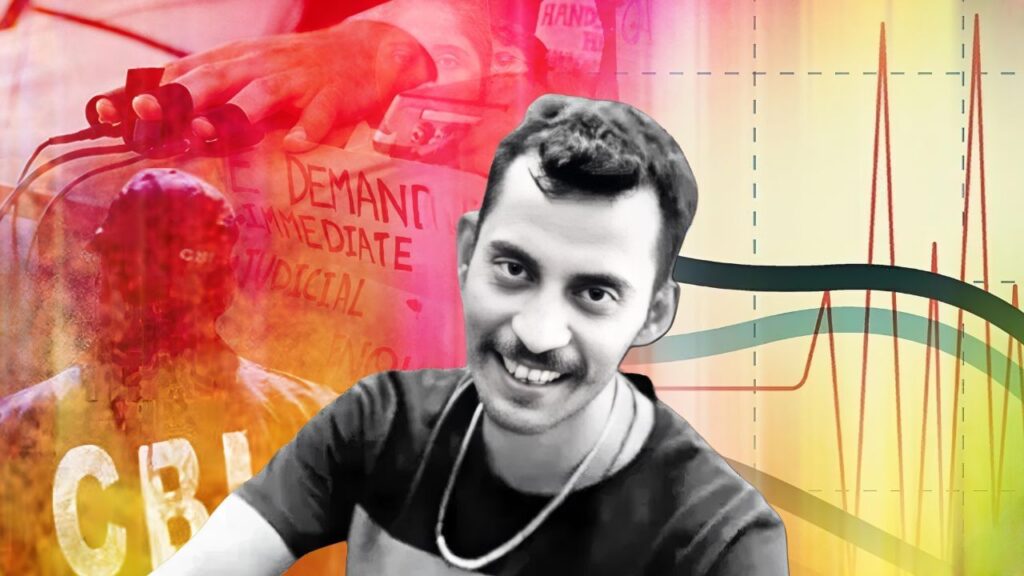The unthinkable crime that has emerged from Kolkata has left the city in shock. A trainee doctor at RG Kar Medical College and Hospital has been brutally raped and murdered, and the alleged perpetrator, Sanjay Roy, a civic volunteer, has been arrested by the Kolkata police. Initially, after his arrest, Sanjay confessed to the crime and even expressed his desire for the death penalty, but as the investigation has progressed, the situation has taken a perplexing turn. The Central Bureau of Investigation (CBI) has now stepped in to investigate the case, raising questions about the veracity of Sanjay’s statements and his shifting narrative.
The Arrest and Initial Confession
Sanjay Roy was apprehended within 24 hours following the horrific incident at RG Kar Medical College. During police custody, he confessed to the crime and requested the death penalty as punishment. However, the dynamics shifted dramatically when the CBI took over the investigation. CBI officials not only recreated the crime scene at the hospital but also conducted extensive interrogations, including psychological assessments that have now led to a court-sanctioned polygraphic test, commonly known as a lie detector test.
Contradictory Statements and Behavioral Changes
According to CBI sources, Sanjay has been changing his statements multiple times, displaying inconsistencies that raise alarms. Initially, while in police custody, he admitted to the crime, but his narrative has now morphed significantly. CBI reports indicate that he is behaving unpredictably, similar to how a chameleon changes its colors. He has vacillated between claiming innocence and confessing guilt, further complicating the investigation.
Challenges in the Interrogation
During recent interrogations, Sanjay attempted to provide misleading information about his whereabouts and actions on the day of the crime. He initially stated that he had not entered the seminar room where the incident allegedly occurred but later contradicted himself by mentioning that he had merely peeked inside. Furthermore, he has failed to explain how a Bluetooth headset discovered at the crime scene ended up with him or how he acquired scratches on his body.
Importance of the Polygraph Test
The discrepancies in Sanjay’s accounts have led investigators to emphasize the significance of the upcoming polygraph test. The CBI possesses substantial evidence against him, including CCTV footage and other critical recordings that document the timeline of events and his activities. This key evidence strengthens the case against him, highlighting attempts to evade accountability, prompting the urgency for the lie detector test.
Reactions and Psychological State
During a recent hearing, when asked about the polygraph test, Sanjay exhibited signs of distress, breaking down in tears while asserting his innocence. He claimed that his agreement to undergo the test was a testament to his non-participation in the crime. Even when transferred to Presidency Jail, he reportedly insisted to fellow inmates that he had not harmed anyone.
How Does Polygraph Testing Work?
The CBI aims to uncover the truth through the polygraph test, conducted to measure physiological responses that indicate truthfulness or deception. The method typically involves asking specific questions repeatedly to observe any discrepancies in the subject’s responses. Key indicators such as increased heart rate, blood pressure variations, excessive sweating, and changes in respiration can suggest deception.
Conclusion: The Path Ahead
As the investigation unfolds, the CBI will conduct the polygraph test soon, allowing them to draw clearer conclusions about Sanjay’s motivations and actions surrounding this heinous crime. While the legal system does not solely rely on polygraph results, the insights gained could be instrumental in piecing together the complex puzzle of this tragic case. The ongoing investigation continues to engage public interest, emphasizing the need for justice in such a distressing scenario.
